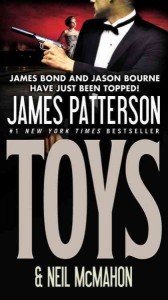 Amber Appleton, at seventeen years old, is a busy girl – visiting the elderly at the local nursing home, swapping haikus with a Vietnam veteran, teaching English through R&B at a Korean Catholic church, and looking out for the socially-struggling guys of the “Franks Freak Force Federation.” She is an optimist, a Catholic, and homeless – sleeping in the school bus her single mother drives all day before barhopping at night for Mr. Right Now. Amber makes up for the lack of stability in her life with the diversion she finds in helping and connecting with others. Readers will question whether her pluck, happiness, and faith are in spite of her situation or because of it. Amber’s voice is funny, snarky, and authentic (her language likely influenced by Quick’s former years teaching high school). In the hands of a less skilled author, this could be a gag-inducing after-school special about unlikely triumph, but Quick gives us a real story about relationships, hardship, joy, and emotional survival.
Amber Appleton, at seventeen years old, is a busy girl – visiting the elderly at the local nursing home, swapping haikus with a Vietnam veteran, teaching English through R&B at a Korean Catholic church, and looking out for the socially-struggling guys of the “Franks Freak Force Federation.” She is an optimist, a Catholic, and homeless – sleeping in the school bus her single mother drives all day before barhopping at night for Mr. Right Now. Amber makes up for the lack of stability in her life with the diversion she finds in helping and connecting with others. Readers will question whether her pluck, happiness, and faith are in spite of her situation or because of it. Amber’s voice is funny, snarky, and authentic (her language likely influenced by Quick’s former years teaching high school). In the hands of a less skilled author, this could be a gag-inducing after-school special about unlikely triumph, but Quick gives us a real story about relationships, hardship, joy, and emotional survival.
Quick’s novels are engaging because of the authenticity of his characters and interactions among his diverse casts, and Sorta Like A Rock Star is no exception. The characters draw empathy and laughter because they are so carefully crafted to be genuine. Although Quick does not leave out any detail of characterization, the story isn’t bogged down in prose. It is perfectly tuned to a young adult audience, as young adults in my experience seem to have a radar for detecting falseness, and are less patient with wordiness. Young adult readers of realistic fiction will appreciate the funny yet complex characters in realistic circumstances, both humorous and dire.
The audio version of this book was fine, but the adult narration of the story did not always capture the accurate inflection of some of the slang terms, which could be a turnoff for teens. I would recommend the print version of this book to the next reader. Fans of tough and funny lead characters — Catcher’s Holden Caulfield or Whale Talk’s TJ — will enjoy this book, and despite the somewhat cheesy ending, my heart was singing because of my love of the characters. Feel good about Sorta Like a Rock Star.
Check the WRL catalog for Sorta Like a Rock Star
 Anda is a skilled player in a multiplayer online game called Coarsegold Online who learns about gold farmers – paid players in the game who simply hunt and gather treasures in the game for other high-bidding players who pay for, rather than earn, these points and tokens. At first annoyed by these illegal “cheaters,” and shortly after hired to hunt them for money, she learns that these gold farmers are overworked, poorly compensated players in other parts of the world for whom gold farming is not just a game, but their livelihood. Anda deals with conflicts with others in her guild in the game, confronts her own conflicted feelings about the gold farmers, tries to allay her parents’ concern about her online behavior, and struggles with right and wrong from different perspectives. I had been waiting since September 2014’s reviews for this book and was not disappointed by this beautiful graphic novel.
Anda is a skilled player in a multiplayer online game called Coarsegold Online who learns about gold farmers – paid players in the game who simply hunt and gather treasures in the game for other high-bidding players who pay for, rather than earn, these points and tokens. At first annoyed by these illegal “cheaters,” and shortly after hired to hunt them for money, she learns that these gold farmers are overworked, poorly compensated players in other parts of the world for whom gold farming is not just a game, but their livelihood. Anda deals with conflicts with others in her guild in the game, confronts her own conflicted feelings about the gold farmers, tries to allay her parents’ concern about her online behavior, and struggles with right and wrong from different perspectives. I had been waiting since September 2014’s reviews for this book and was not disappointed by this beautiful graphic novel. Matt Miller is a modern day teen in Brooklyn whose mother has passed away from cancer. Partly to start helping his father and partly to distract himself from the fact that everyone seems to pity him, Matt visits the “Cluck Bucket” to try apply for a job, when a emergency cleanup he witnesses convinces him food service is not for him. The local funeral director, Mr. Ray, who coincidentally oversaw his mother’s arrangements, offers him $30 a day to help out around the funeral home when they run into each other this fateful day at the chicken joint. The next day Matt reports after school and helps Mr. Ray set up flowers, receptions, and handle basic arrangements. As Matt’s father descends into drink, Matt becomes both more independent and connected to more people in his community through his work at the home.
Matt Miller is a modern day teen in Brooklyn whose mother has passed away from cancer. Partly to start helping his father and partly to distract himself from the fact that everyone seems to pity him, Matt visits the “Cluck Bucket” to try apply for a job, when a emergency cleanup he witnesses convinces him food service is not for him. The local funeral director, Mr. Ray, who coincidentally oversaw his mother’s arrangements, offers him $30 a day to help out around the funeral home when they run into each other this fateful day at the chicken joint. The next day Matt reports after school and helps Mr. Ray set up flowers, receptions, and handle basic arrangements. As Matt’s father descends into drink, Matt becomes both more independent and connected to more people in his community through his work at the home. This volume of collected webcomics from Jillian Tamaki was a no-brainer purchase for the Young Adult Graphic Novel collection–it is centered on teen protagonists at an X-Men/Hogwarts-type boarding school, and is written and illustrated by the illustrator of the Printz Award-winning This One Summer. Upon receipt, it was cataloged for the Adult Collection, and when I sat down to reconsider its classification, I was hooked, and honestly doubtful as to just where this quirky volume should reside.
This volume of collected webcomics from Jillian Tamaki was a no-brainer purchase for the Young Adult Graphic Novel collection–it is centered on teen protagonists at an X-Men/Hogwarts-type boarding school, and is written and illustrated by the illustrator of the Printz Award-winning This One Summer. Upon receipt, it was cataloged for the Adult Collection, and when I sat down to reconsider its classification, I was hooked, and honestly doubtful as to just where this quirky volume should reside.





